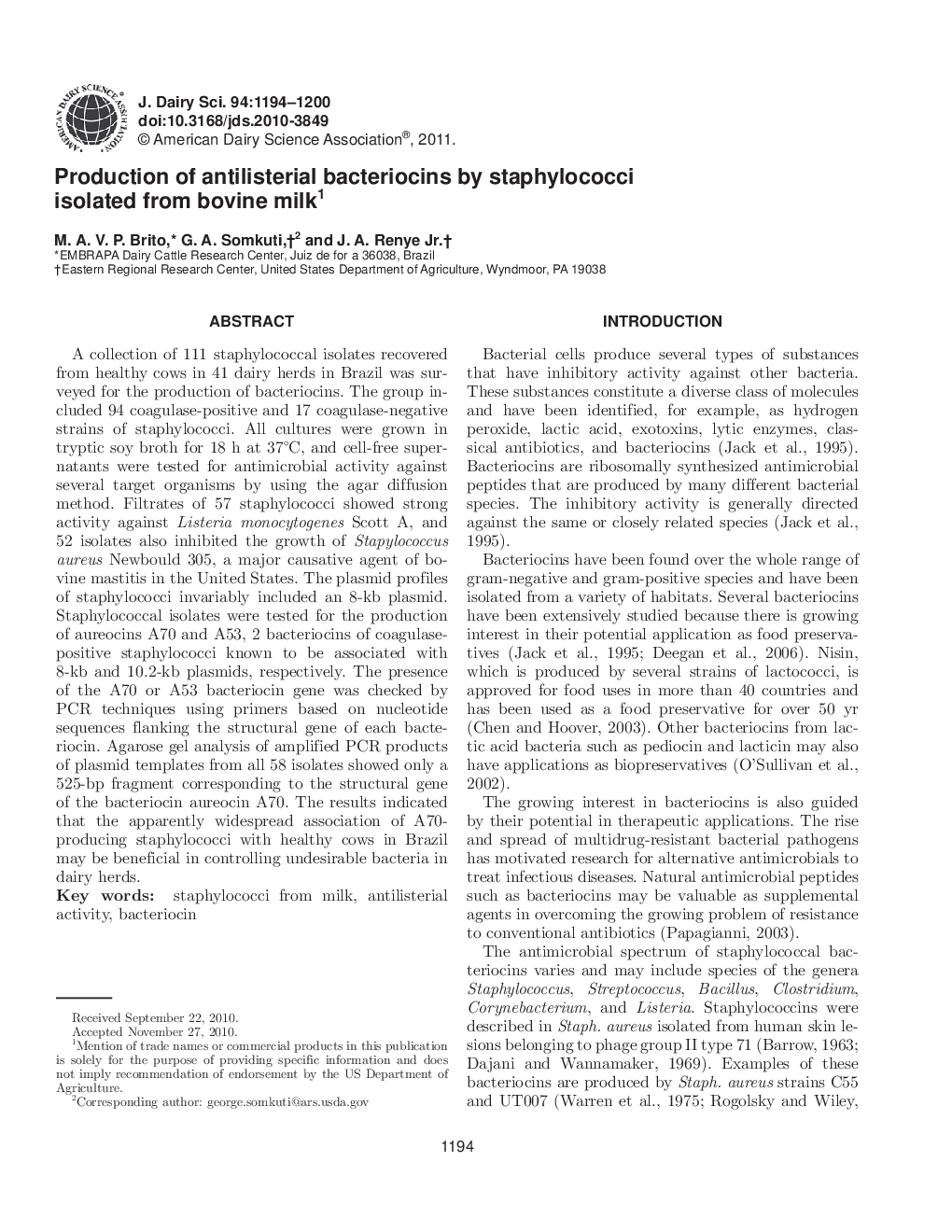| Article ID | Journal | Published Year | Pages | File Type |
|---|---|---|---|---|
| 10981365 | Journal of Dairy Science | 2011 | 7 Pages |
Abstract
A collection of 111 staphylococcal isolates recovered from healthy cows in 41 dairy herds in Brazil was surveyed for the production of bacteriocins. The group included 94 coagulase-positive and 17 coagulase-negative strains of staphylococci. All cultures were grown in tryptic soy broth for 18 h at 37°C, and cell-free supernatants were tested for antimicrobial activity against several target organisms by using the agar diffusion method. Filtrates of 57 staphylococci showed strong activity against Listeria monocytogenes Scott A, and 52 isolates also inhibited the growth of Stapylococcus aureus Newbould 305, a major causative agent of bovine mastitis in the United States. The plasmid profiles of staphylococci invariably included an 8-kb plasmid. Staphylococcal isolates were tested for the production of aureocins A70 and A53, 2 bacteriocins of coagulase-positive staphylococci known to be associated with 8-kb and 10.2-kb plasmids, respectively. The presence of the A70 or A53 bacteriocin gene was checked by PCR techniques using primers based on nucleotide sequences flanking the structural gene of each bacteriocin. Agarose gel analysis of amplified PCR products of plasmid templates from all 58 isolates showed only a 525-bp fragment corresponding to the structural gene of the bacteriocin aureocin A70. The results indicated that the apparently widespread association of A70-producing staphylococci with healthy cows in Brazil may be beneficial in controlling undesirable bacteria in dairy herds.
Keywords
Related Topics
Life Sciences
Agricultural and Biological Sciences
Animal Science and Zoology
Authors
M.A.V.P. Brito, G.A. Somkuti, J.A. Jr.,
